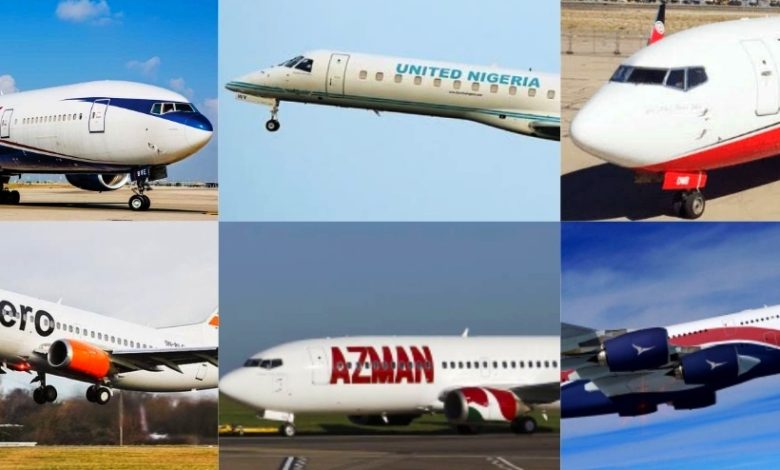
The Nigerian aviation industry is currently facing a shortage of aircraft, which is placing considerable strain on operators and service providers.
The shortage, primarily due to the high maintenance costs driven by foreign exchange scarcity, impacts the entire aviation ecosystem, from airlines to ancillary service providers.
Many domestic airlines have been forced to ground their aircraft due to the inability to afford maintenance costs, exacerbated by the foreign exchange crisis.
According to data from the Nigeria Civil Aviation Authority (NCAA), out of 91 aircraft operated by 13 domestic airlines, more than half are currently out of operation for maintenance, with some unable to return to service. Notably, Dana Air has been completely grounded.
The total number of operational aircraft in Nigeria has declined sharply from over 120 five years ago to 91, reflecting the growing challenges in the sector.
The reduction in fleet size has decreased the carrying capacity of airlines, affecting their revenue streams.
The shortage of aircraft has led to a decline in demand for services provided by various stakeholders, including aviation agencies, ground handlers, catering services, and fuel marketers.
The reduction in flight operations has directly impacted the revenues of these service providers, who rely on the volume of airline operations to sustain their businesses.
The National Bureau of Statistics (NBS) reported a sharp drop in Nigeria’s spending on kerosene-type jet fuel, falling by 87% from N239.18 billion in Q4 2023 to N31 billion in Q1 2024.
The decrease is closely linked to the number of operational aircraft, as fewer flights require less fuel.
The ongoing aircraft shortage is squeezing the aviation industry’s revenue at multiple levels.
According to Business Day, airlines that already operate with thin profit margins, are experiencing diminished income due to reduced capacity.
The entire aviation ecosystem, including regulatory bodies like the NCAA, which earns a percentage from airline ticket sales and cargo, is feeling the economic pinch.
